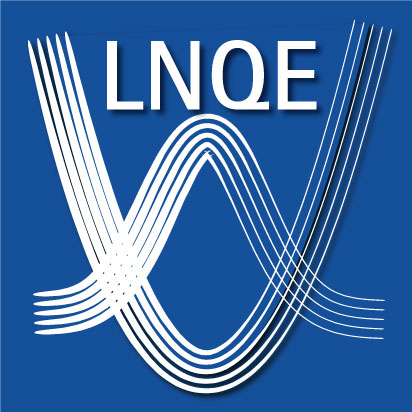For this winter semester 2011/12, the master''s degree program in nanotechnology starts at the Leibniz Universität Hannover for the first time. It builds on the Bachelor of nanotechnology, which is already offered since three years.
The term nanotechnology refers to the exploration and manipulation of atoms and structures that are smaller in at least one dimension less than 100 nanometers. At these small dimensions, surface properties come over the bulk properties of materials more and more into the foreground and also quantum effects can play a role that do not occur in our macroscopic world. Nanotechnology has developed over the last 30 years extremely dynamic and highly interdisciplinary, is used in many products, and is therefore one of the key technologies of the 21st Century. Nanotechnology is a highly interdisciplinary field of research and comprises content from chemistry, electrical engineering, physics, and mechanical engineering. The Bachelor and Master degree programs are composed of nanotechnology courses of these fields.
Leibniz Universität Hannover is with the interdisciplinary research center Laboratory of Nano and Quantum Engineering (LNQE) in an excellent position in the field of nanotechnology. Here scientists and engineers are working closely linked successfully together, since November 2009 also in the offices and laboratories of the newly constructed research building LNQE.
To start the new program a bachelor''s or equivalent degree in nanotechnology, chemistry, electrical engineering, mechanical engineering or physics is required (for details, see the admission regulations of the course). In addition to basic courses on methods of nanotechnology three electoral areas of competence are to be selected as majors. Available are for selection the areas of competence chemistry, chemistry of nanomaterials, laser technology / photonics, materials physics, micro and nano electronics, micro production technology, as well as nano and micro process technology. In addition, a semiconductor-technologies lab, a solid-state physics lab, and a micro-technology lab are provided. The conclusion of the course is the master thesis with a total duration of six months. The standard length of the new Master''s program nanotechnology is four semesters, with degree Master of Science.
Links:







![[Translate to English:] Logo Zusammenland farbig](/fileadmin/_processed_/a/9/csm_zusammenland_4c_e78505eb7d.png)
![[Translate to English:] Logo Zusammenland-schwarzweiß](/fileadmin/_processed_/1/2/csm_zusammenland_sw_f06954e75c.png)